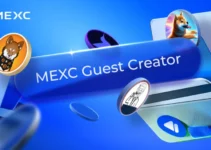Introduction
Welcome to this introduction to Web 3.0. In this article, we will explore the concept of Web 3.0 and its differences from Web 2.0. We will also look at the advantages it offers over its predecessor and its potential impact on various industries.

What is Web 3.0?
Web 3.0 refers to the next generation of the internet. It aims to provide a more decentralized, open, and user-centric online experience. Unlike its predecessor, Web 2.0, focuses on user-generated content and social networking. Meanwhile, Web 3.0 aims to leverage emerging technologies like blockchain, artificial intelligence, and the Internet of Things (IoT) to create a more intelligent, interconnected, and secure web.
What is Web 2.0?
Web 2.0 refers to the current state of the internet, characterized by interactive and collaborative user experiences. It brought about the rise of social media platforms, online communities, and user-generated content, enabling users to actively participate and contribute to the online world. Web 2.0 platforms include Facebook, Twitter, YouTube, and Wikipedia.
The Concept of Web 3.0 and How It Differs from Web 2.0:
- Web 3.0 differs from Web 2.0 in several key aspects. Firstly, it emphasizes decentralization, aiming to reduce reliance on central authorities and intermediaries. Blockchain technology plays a significant role in enabling this decentralization, as it provides a transparent, immutable, and secure foundation for various web applications.
- Web 3.0 focuses on enhancing data privacy and user control. Instead of centralized platforms owning and monetizing user data, Web 3.0 aims to empower users by allowing them to control and manage their personal information. This shift towards user-centricity enhances privacy and gives individuals more control over their online identities.
- Additionally, Web 3.0 incorporates artificial intelligence and machine learning algorithms to deliver more personalized and intelligent online experiences. By analyzing user behavior and preferences, web applications can tailor content and services to meet individual needs, leading to a more efficient and relevant user experience.
Advantages of Web 3.0 Over Web 2.0:
Web 3.0 offers several advantages over Web 2.0.
- Firstly, the decentralized nature of Web 3.0 makes it more resilient to censorship and single points of failure. By distributing data and applications across a network of nodes, it becomes harder for any central authority to control or manipulate the web.
- Secondly, Web 3.0 enables peer-to-peer transactions without the need for intermediaries. Smart contracts, powered by blockchain technology, allow for secure and automated agreements between parties, eliminating the need for traditional middlemen and reducing transaction costs.
- Web 3.0 enhances data privacy and security by giving users greater control over their personal information. With the use of decentralized identity systems and cryptographic protocols, users can authenticate and authorize access to their data without relying on centralized platforms.
The Potential Impact of Web 3.0 on Various Industries:
Web 3.0 has the potential to revolutionize numerous industries. In finance, blockchain-based cryptocurrencies and decentralized finance (DeFi) applications have the potential to disrupt traditional banking systems and offer more inclusive financial services.
- Healthcare, Web 3.0 can enable secure and interoperable electronic health records, facilitating better patient care coordination and data sharing while maintaining privacy and security.
- Entertainment and media industries by allowing content creators to have direct relationships with their audiences through blockchain-based platforms. This can revolutionize content monetization models and provide fairer compensation for creators.
- Additionally, industries such as supply chain management, energy, governance, and education can benefit from the transparency, efficiency, and trust provided by Web 3.0 technologies.
Conclusion:
Web 3.0 represents the next evolution of the internet, offering a more decentralized, user-centric, and secure online experience. Its use of blockchain, artificial intelligence, and other emerging technologies promises to disrupt various industries and empower individuals with greater control over their data and online interactions. As we embrace the potential of Web 3.0, it will be exciting to witness its transformative impact on the digital landscape and beyond.
Personal Note From MEXC Team
Check out our MEXC trading page and find out what we have to offer! There are also a ton of interesting articles to get you up to speed with the crypto world. Lastly, join our MEXC Creators project and share your opinion about everything crypto! Happy trading!
Join MEXC and Get up to $10,000 Bonus!
Sign Up


